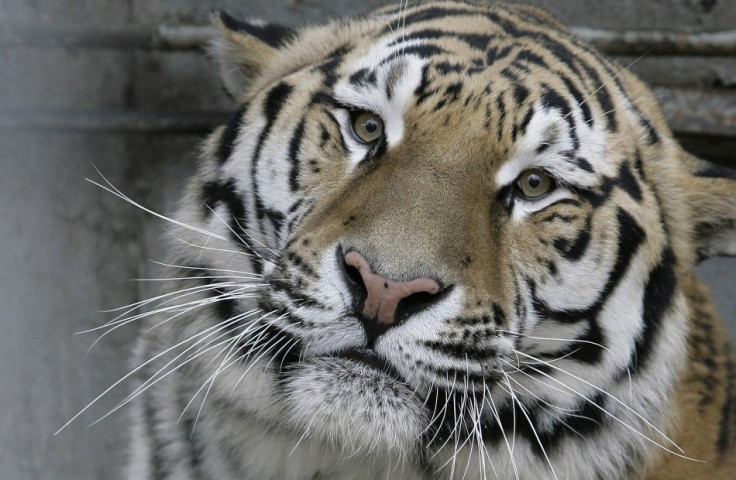Timber firm threatens Amur tiger habitat in Russia

A proposed UNESCO World Heritage Site is facing threat to its green cover which may also lead to extinction of Amur tiger with the shrinking habitat in Russia’s Primorsky Province.
Last November, the Bikin River Basin was submitted as a candidate to become a UNESCO World Heritage Site on the initiative of the Russian government.
Primorsky province in the Russian Far East is also one of the last remaining strongholds of the largest of all big cats, the Amur tiger, which numbers less than 500 in the wild and is on the brink of extinction, say WWF Russia and the Association of Indigenous Peoples of Primorsky Province.
Though tiger numbers in the Russian Far East have rebounded in the past 50 years, the big cat is still highly threatened by poaching, human-tiger conflict and exploitation of the area’s vast forests.
According to the WWF’s Living Forests Report released in April 2011, more than 230 million hectares of forest will disappear by 2050 if no action is taken – a disastrous situation for the estimated 3,200 tigers remaining in increasingly isolated pockets of habitat across 13 nations.
The green groups are protesting the licenses given to JSC Les Export, a wood harvesting and export company that specializes in parquet flooring company.
The protests followed Les Export’s application for a timber lease in the Bikinsky Pine Nut Harvesting Zone in the Bikin River Basin, part of the largest intact tract of old-growth Korean pine-broadleaf forests in the world (407,300 hectares) and an extremely important habitat for Amur tigers.
The two approved leases are in the Pozharsky Pine Nut Harvesting Zone, and the Sredneussuriskiy Provincial Wildlife Refuge, which make up the only ecological corridor connecting the Russian population of Amur tigers with a Chinese population across the border in China’s Wandashan Mountains.
“We regard this as betrayal,” said Yury Darman, Director of WWF Russia’s Amur branch. “JSC Les Export previously agreed that it would not use timber from pine nut harvesting zones or protected areas.”
“JSC Les Export’s actions go against the company’s commitment to work towards certification under the Forest Stewardship Council, an independent organization that promotes responsible management of the world’s forests.”
“Furthermore, it is a betrayal of the native residents of Bikin – the Udegei and Nanai – whose lives completely depend on traditional use of the riches of this area,” said Darman. “These communities have been defending the Bikin from exploitation since 1992.”
“This is our forest. We hunt here, fish here, gather medicinal plants here, harvest wood here for our personal needs,” said Igor Kukchenko Vice President of the Association of Indigenous Peoples of Primorsky Province.
“The inhabitants of our village Krasniy Yar have spoken out against the leasing of this forest tract by JSC Les Export and any other industrial logging in the Bikin,” he added.
On June 5, 2011, Krasniy Yar residents petitioned the provincial and federal governments not to permit leasing of the territory of the middle and upper reaches of the Bikin River for timber harvesting.
The forests have also been under lease since June 2009 by the Indigenous Peoples' Association (which has been named “Tiger”) for the processing of pine nuts and medicinal plants.
© Copyright IBTimes 2025. All rights reserved.





















